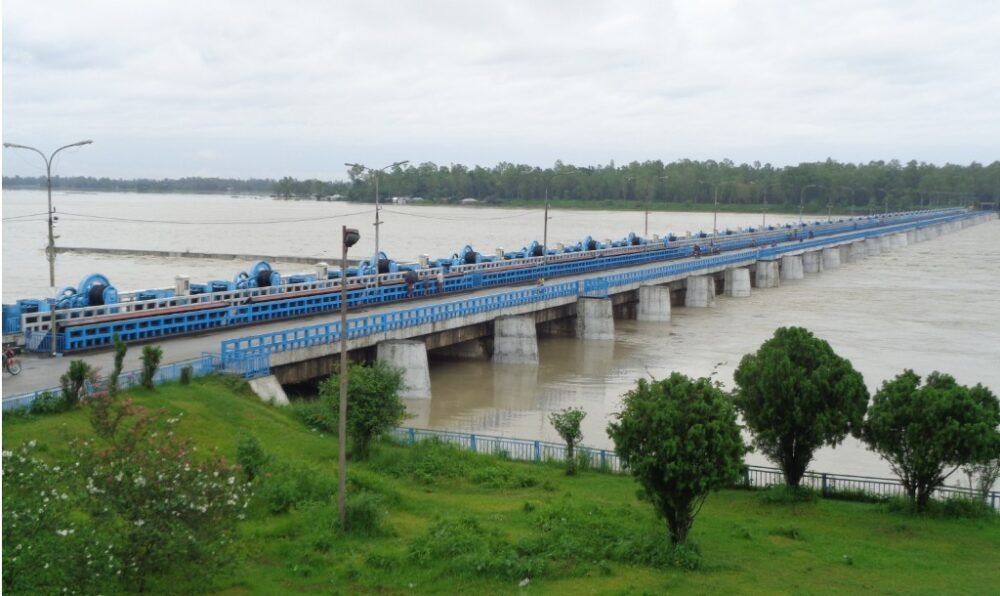Humayun Kabir Bhuiyan: Bangladesh only gets India’s assurances on the agreement that was scheduled to be signed on September 6, 2011
A decade on, India has not yet completed what it calls internal consultations to pave the way for the conclusion of the much talked about Teesta water-sharing agreement with Bangladesh.
Bangladesh and India were scheduled to ink the agreement on September 6, 2011, in Dhaka during the visit of the then Indian Prime Minister Dr Manmohan Singh. But, the agreement, a draft of which was signed by the water resources secretaries of both the countries in January 2011, could not be inked due to the last minute objection raised by West Bengal Chief Minister Mamata Banerjee.
The interim agreement on water sharing of the common river Teesta was supposed to be signed for 15 years. Had the deal been signed on the day 10 years back, two-third of the interim period would have elapsed by now.
Since September 6, 2011, there has not been any headway with respect to this important agreement. It has been like Bangladesh raises the issue with India in almost every opportunity and the Indian side assures of inking the deal once its internal consultations are done.
As of now, no one, at least in Dhaka, appears to know when the Indian internal consultations between the central government and the West Bengal state government will end for the deal to be signed to ensure that Bangladesh gets its rightful share of the Teesta water.
Given a rocky relationship between Indian Prime Minister Narendra Modi and West Bengal Chief Minister Banerjee, who recently won a third term, it is extremely unlikely if she will be onboard to conclude the agreement. And, if the past is any guide, the Modi administration does not appear to want to conclude the agreement without the West Bengal chief minister.
As far as Bangladesh is concerned, the wait is going to be longer causing more suffering without any fault whatsoever.
Galore of assurances without any result
Since the visit of Dr Manmohan Singh, both Bangladeshi and Indian political and bureaucratic leaderships of different levels expressed optimism of signing an agreement, but without any fruition.
On September 7, 2011, Dr Singh lamented the failure of signing an agreement in his speech at the Dhaka University saying that it was “unfortunate.”
During a meeting with Prime Minister Sheikh Hasina on the sidelines of the 17th Saarc Summit in early November 2011 in the Maldives, the Indian prime minister reportedly assured of concluding the agreement as soon as possible
Dr Singh’s successor, Narendra Modi, during his visit to Dhaka in 2015, gave assurance of concluding the agreement.
During the visit of Prime Minister Hasina to India in early April 2017, Modi, following a bilateral discussion with his Bangladeshi counterpart, announced at a joint briefing in the Hyderabad House that the Teesta water-sharing deal would be inked during the current tenures of the two governments. But, that did not happen.
Even, Mamata Banerjee herself visited Bangladesh twice in 2015 and had assured that she would play a “positive role” in this regard.
Besides, many Indian influential individuals, including the president, vice president, ministers and envoys assured the Bangladeshis side.
When contacted, Mashfee Binte Shams, secretary (East) of the Foreign Ministry, told journalists on Monday that the government continued to raise the issue with the Indian side to conclude the agreement to allow Bangladesh to get its just share of Teesta water.
The matter still remains an internal process of India, she said.
“The central government of India has not yet completed its negotiations with the West Bengal state government,” said the secretary.
“We always raise this issue with India. We want our just share of the water of Teesta,” she said.
As contacted, Indian Deputy High Commissioner in Dhaka Binoy George told this correspondent on Monday that he would not make any comment over the phone and asked to get in touch with two officials of the mission.
However, the officials could not be reached for comment. Even, the messages sent to them were not replied to as of filing the report.

